
|
|
ITV: A (Very) Brief
History
|
|
|
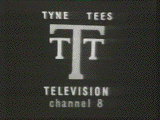
|
From 1936 to 1955 there was only one television channel
in the UK (and nothing at all during World War 2), then the
ITV (Independent Television) network came along which unlike
the BBC was funded entirely using revenue from advertisments
shown between programmes. Another key difference was that
ITV consisted of several different companies, each one
serving a different part of the British Isles and producing
programmes which were either shown locally or nationally
across the entire network. This caption from Tyne Tees
(North-East England) gives the VHF channel number.
|
|
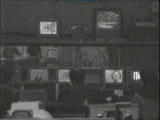
|
ITN (Independent Television News) provided news
programmes for the ITV network and the organisation still
does so today. The first bulletin was transmitted at 10 p.m.
on 22 September 1955 on ITV's opening night, and introduced
a less formal style of news broadcasting to the UK imported
from America, which was in direct contrast to the cinema
newsreels and still pictures that the BBC used. The
appropriately-named Christopher Chataway presented the first
programme, and him, along with Robin Day and Ludovic
Kennedy, became household names.
|
|

|
The news was not the only thing different about the new
service. ITV, in contrast to the licence fee funded BBC, was
more 'downmarket' in its approach, showing quiz games and
popular light entertainment shows in order to attract
viewers to the new service. The caption shown is the start
of the title sequence for Sunday Night at the London
Palladium, presented by Jack Parnell, and produced for the
ITV network by Associated Television (ATV), the company that
served the Midlands (and London at weekends for a while)
until 1982.
|
|

|
Another early feature of ITV which survived until 1963
(when it was outlawed) was the 'ad mag' or advertising
magazine, another idea borrowed from Amreica. Instead of
featuring advertisments in clearly defined breaks before and
during a programme, the advertisments were incorporated into
the content of the programme, so (for example) a 'housewife'
talking to her friend would casually mention that she uses
Persil washing powder for 'a whiter wash'. The most popular
of these was called "Jim's Inn".
|
|
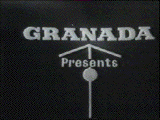
|
Granada Television (which serves the North-West of
England) is the longest surviving of the ITV companies,
having been one of the original franchise holders in 1956.
It is famous for several programmes, especially Coronation
Street (a long-running soap opera) and World in Action.
|
|
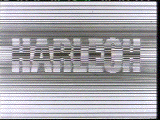
|
Here's a rather infamous example of an 'ident' shown
circa the late 1960's, ie. a still caption or short
animation played before the start of a tv programme that
identified the ITV region that produced it, often with
accompanying music. Very occassionally (as with the ATV
example above) they were incorporated into the programme
titles. Harlech Television (now generally known as HTV),
serving Wales and parts of the West of England, still has
the franchise but is now part of the MAI group of companies
(who also own Meridian and Anglia Television). Idents (as
such) were scrapped around the mid 1980's.
|
|
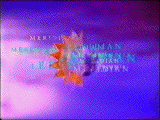
|
Commercial television often uses what is known as a
'break bumper' between commercials which usually is a very
short (typically less than 2 second) animation with no
music. The picture is taken from the one currently used by
Meridian Television which serves the South and South-East of
England. The 'bumper' doesn't have to include the company
logo; the one used by Westward Television featured a
rotating hexagon !
|
|

|
Unlike the BBC, the ITV companies only hold a franchise
to broadcast in a particular region, and these franchises
are reviewed every couple of years. Licence renewal is not
automatic, as many companies have found to their cost. The
first two reviews occured in 1968 and in 1982; the latter
(among other changes) had TVS replacing Southern as the
contractor serving the South and South East of England.
However TVS then later lost the franchise as a result of the
controversial franchise auction that took place in 1991, so
on the 1st January 1993...
|
|

|
...Meridian Television took over the franchise, which it
holds to this day. It is fairly unlikely that the franchise
auction fiasco of 1991 will ever be repeated, whereby
companies had to bid for a franchise, but due to special
rules (which appeared to change at one point almost daily),
there were other considerations such as a 'quality
threshold' to be met. So the highest bidder in the closed
auction did not automatically win the franchise.
|